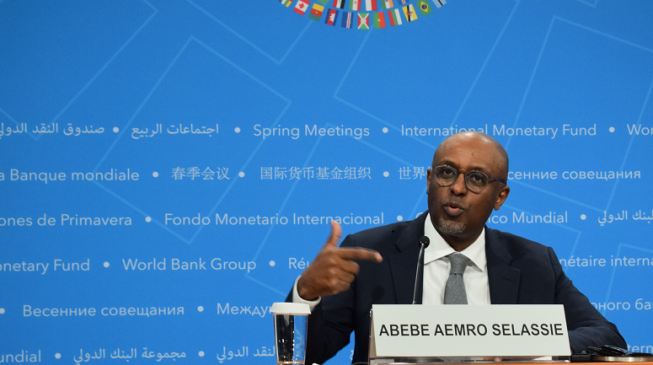
Abebe Aemro Selassie, director of the African department at the International Monetary Fund (IMF), says the risk of countries in Sub-Saharan Africa slipping into debt distress is increasing.
Speaking on Tuesday at the unveiling of the African Economic Outlook report in Accra, Selassie attributed this growing risk to heavy borrowing encouraged by “insatiable investor demand”.
The fund projected that the region’s economy will expand 3.4 percent in 2018 up from 2.8 percent in 2017, boosted by global growth and higher commodity prices.
IMF said 40 percent of low-income countries in the region are now in debt distress or at high risk of it and refinancing those debts could soon become costlier.
“The current growth spurt in advanced economies is expected to taper off, and the borrowing terms for the region’s frontier markets will likely become less favorable … which could coincide with higher refinancing needs for many countries across the region,” it said.
“African governments issued a record $7.5 billion in sovereign bonds last year, 10 times more than in 2016. And they have issued or plan to issue over $11 billion in additional debt in the first half of 2018 alone.”
Six countries – Chad, Eritrea, Mozambique, Congo Republic, South Sudan and Zimbabwe – were judged to be in debt distress at the end of last year. And the IMF’s ratings for Zambia and Ethiopia were changed from moderate to “high risk of debt distress.”
IMF said Africa would need to be more self-reliant to meet the demand of heavy investments to build infrastructure and social development.
“With debt vulnerabilities rising in the region, sub-Saharan African countries will need to further rely on sustainable sources of financing, making domestic revenue mobilization one of the most urgent policy challenges for the region.” - Cable Nigeria
No comments:
Post a Comment